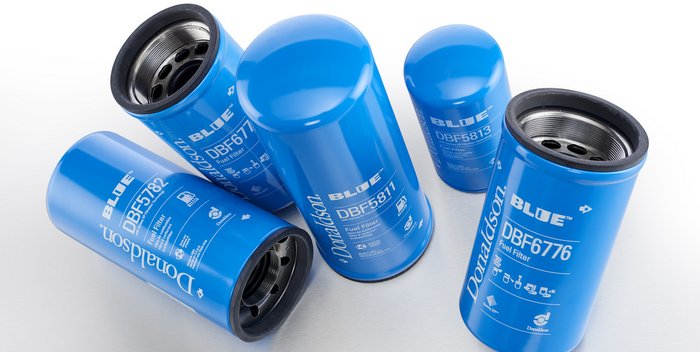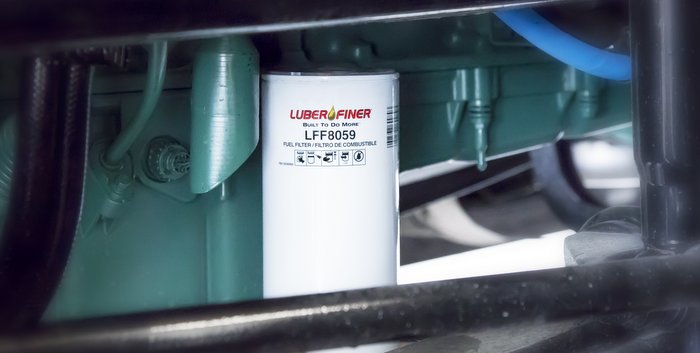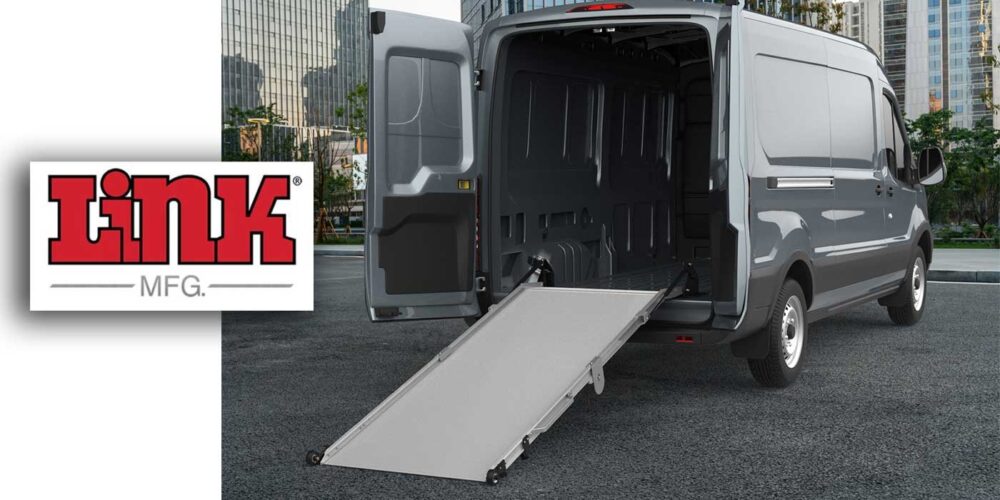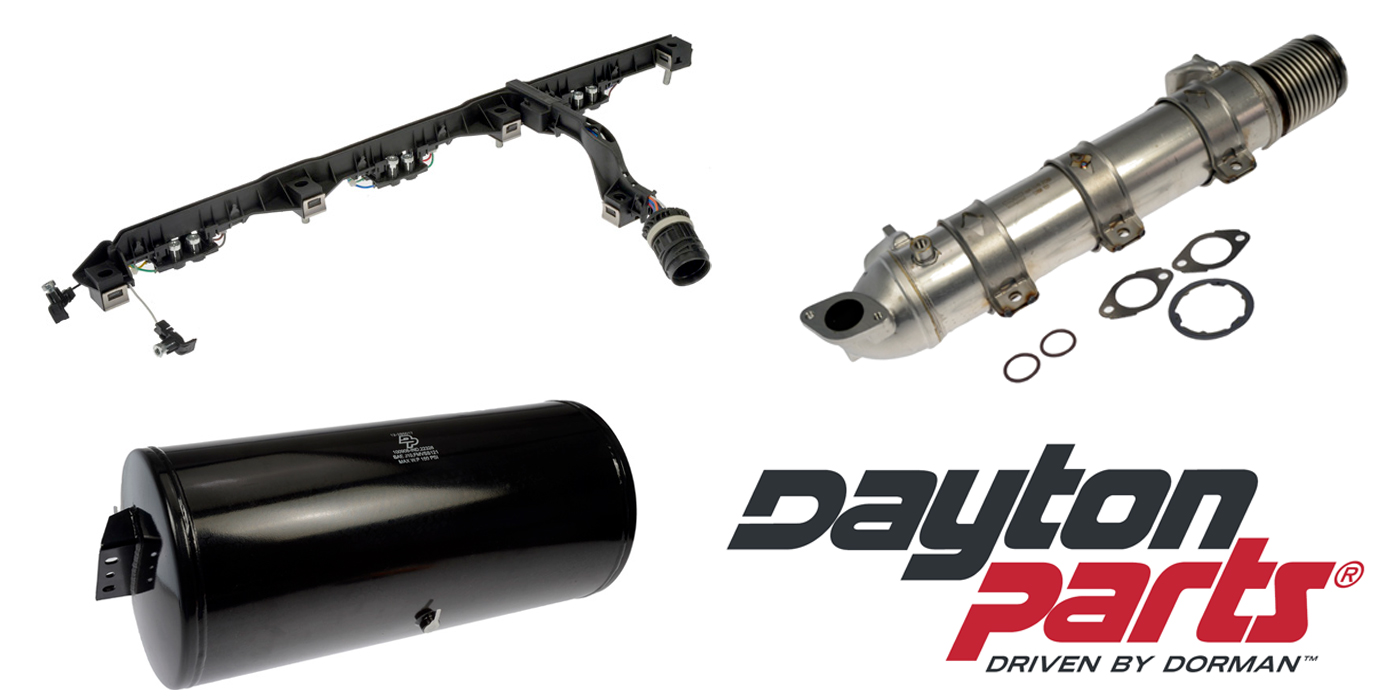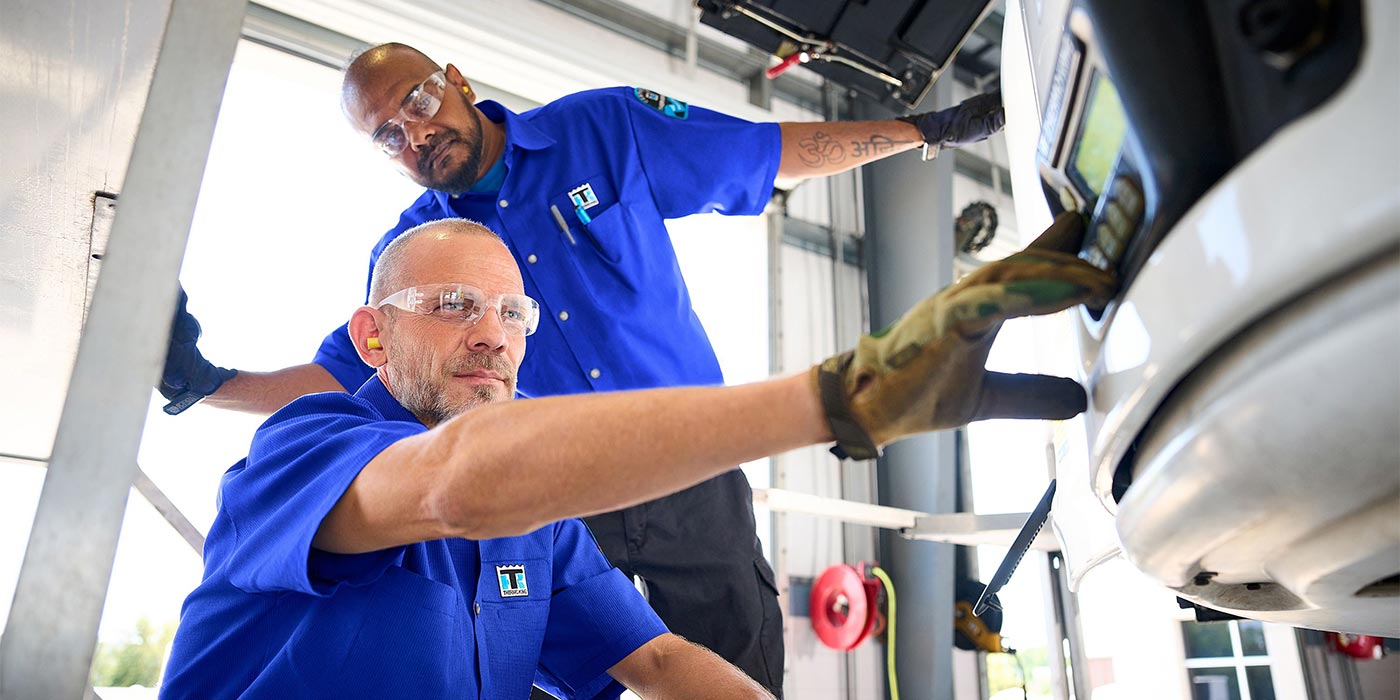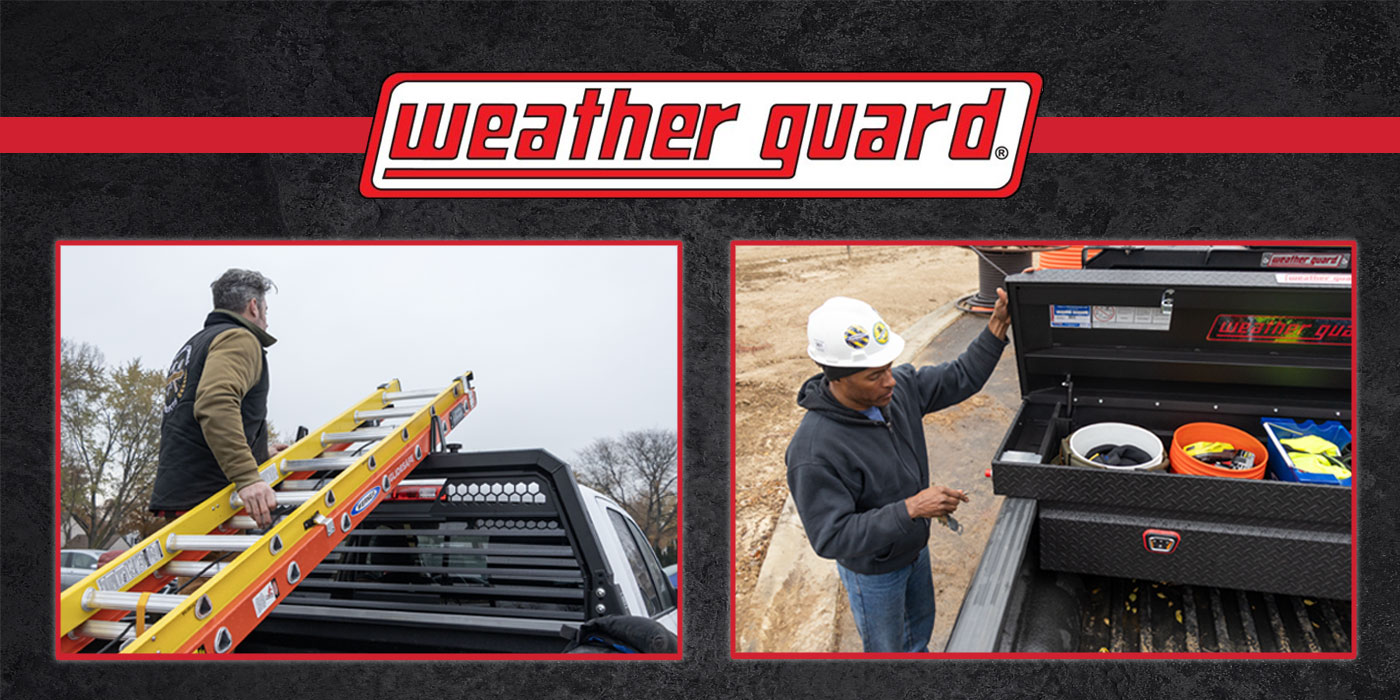Fuel for thought
The fuel coursing through the truck’s network of hosed veins has evolved as much as the equipment itself. The introduction and growing acceptance of biodiesel and ultra-low sulfur diesel (ULSD) have made it more difficult for fuel filters to remove water from the fuel.
“The presence of water in biodiesel can also lead to microbial growth, which can result in reduced filter life,” said Layne Gobrogge, Luber-finer’s director of heavy-duty marketing and product development. “Water itself is damaging to the injectors and other fuel system components, and negatively affects heavy-duty engine efficiency and performance, with low power output and engine shutdown being common occurrences.”
In order to combat this problem, Gobrogge explained that Luber-finer has developed its new MP995 Fuel Filter for use on trucks that are powered by ultra-low-sulfur/biodiesel blends. The MP995 protects the latest common rail high-pressure fuel injection systems by being 99.5% efficient at removing particulates and 95% efficient at removing emulsified water from biodiesel.
Luckily, biodiesel blends are becoming more standard, according to WIX’s Chilton. “In the past, an out of spec blend could cause big trouble with the entire fuel system,” he related. “The BQ-9000 quality system the bio community is using helps blenders keep higher standards and keeps fuel quality high at the pump.”
The move to ULSD, on the other hand, required the addition of fuel additives to help with lubrication of the fuel system components, which was previously provided by the higher sulfur content in the fuel.
“These additives have made it more difficult to remove water from the fuel, which can cause injector damage,” Gobrogge said. “This puts the onus on fuel-filter manufacturers to develop products that can adequately and reliably remove any impurities from the fuel before it is burned, while being compatible with today’s engine designs.”
Heavy-duty heart health
Clogged filters can cause reduced fuel flowing to your truck’s combustion heart, causing it to seize and, eventually, fail. If your fuel filters are failing before their routinely scheduled preventative maintenance check ups, you need to dig into the symptoms of the diesel disease. First, to verify that the filter being used is of the correct micron rating for the application and also analyze any “plugged” filters to determine the type of contaminant such as microbial growth or particulate such as rust, scale, etc.
“This determination on the source of problem is critical to ensure he is using correct filtration product. The worst thing the fleet manager can do is outfit rolling stock with substandard fuel filters,” Luber-finer’s Gobrogge said. “To ensure that the fleet stays on the road, the fuel filters used should feature all-metal housings, possess high levels of pulse fatigue and burst strength, have easy-turn and low-torque valves, and a high-performance filtering media.”
“Filter manufacturers design fuel filters to provide the level of filtration protection specified or required by the OEM. Substitution of a less efficient filter may prolong a filter’s life before plugging occurs,” Cummins Filtration’s Hawkins echoed, “but it will also allow contaminants to pass downstream which will eventually impact the life of the other, more expensive fuel system components.”
Heating diesel fuel above the cloud point is the simplest and most reliable way to avoid plugged fuel filters. It is desirable to heat the diesel fuel as close to the filter element as possible, to re-liquefy wax and ice crystals.
“Now more than ever, fuel conditioning with heat is helpful for biodiesel to improve flow through filtration media,” said Robin MacDonald, sales manager for FTG Inc. “Larger filter assemblies with more media surface area can also reduce fuel system restriction.”
MacDonald went on to suggest regular draining of primary separation chambers in filter assemblies to remove accumulated water and contaminants, and double-checking that the element micron rating meets the engine manufacturer’s specifications. “In many cases a 30 micron or larger primary pre-filter/element can meet fleet PM intervals and offer reduced down-time due to premature secondary filter/element clogging,” he said.
Keep in mind that, though it may seem counterintuitive, a filter that plugs is actually doing its job by protecting a fuel system from contamination.
“A premature filter plugging event observed by the end-user is often a symptom of a problem with fuel quality rather than a problem with the filter itself,” Donaldson’s Grossbauer explained. “As for best practices with fuel, it’s always good to know where you fuel is coming from and what additives are being used. Over utilizing additives can cause filters to plug or, if the temperature drops and the fuel blend isn’t correct, it can also cause filter plugging issues.”
It’s important to remember to follow your manufacturer’s maintenance guidelines to ensure proper fuel filter utilization. Don’t forget that your fuel filtration supplier can also help with any issues, and it’s a good idea to ask them what steps they take to reduce condensation and other contaminants during transport and deliver, and what you can do at your fuel islands and storage tanks.
“In no case should a less efficient filter be substituted to fix a perceived problem with premature plugging,” Hawkins concluded. “Short filter life is usually a symptom. The best way to improve it is not to invite contamination in the first place.”

